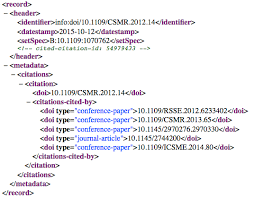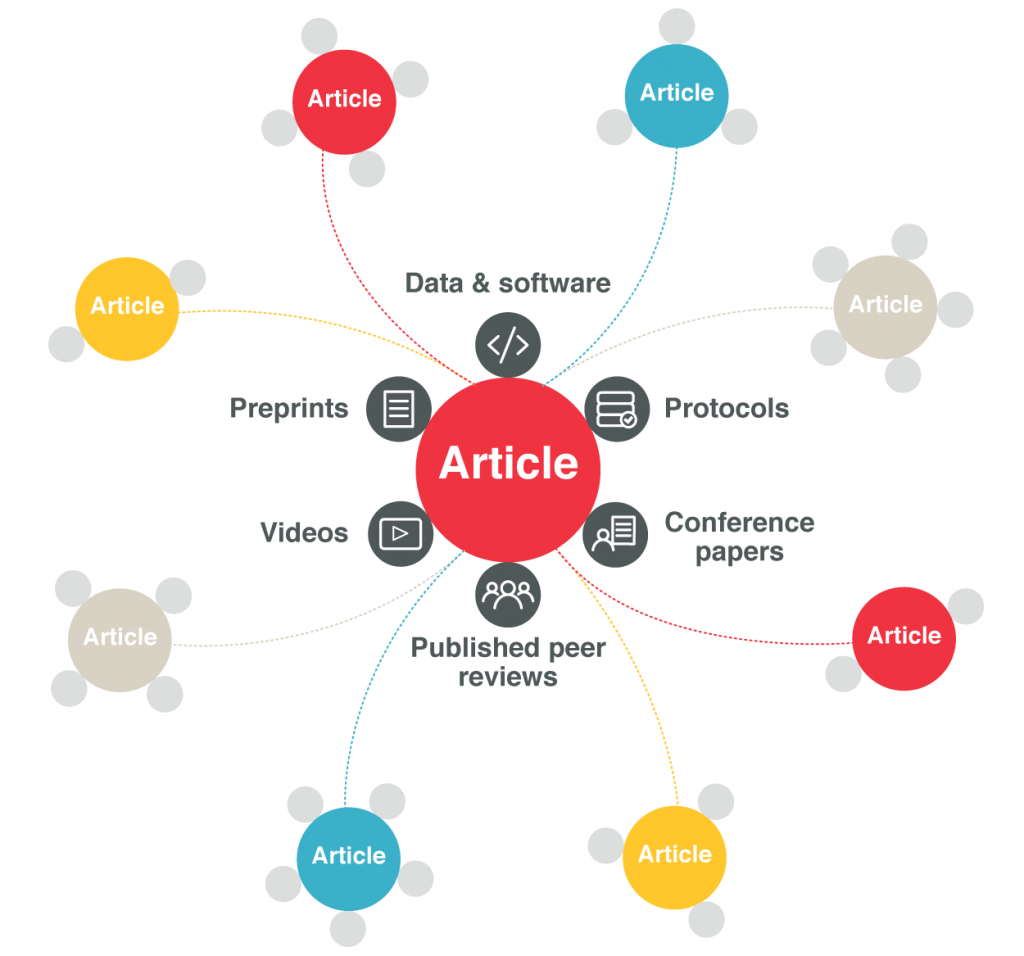You might recognize my name if you’ve ever applied for Crossref membership on behalf of your organisation. It recently occurred to me that, since I’ve been working in our membership department for eight years, I’ve been a part of shepherding new members for half of our history.
Crossref Blog
On September 1st we completed the final stage of the Crossmark v2.0 release and sent an email to all participating publishers containing instructions for upgrading. The first phase of v2.0 happened when we changed the design and layout of the Crossmark box back in May of this year.
We first met the team from PaperHive at SSP in June, pointed them in the direction of the Crossref Metadata API and let things progress from there.
TL;DR Crossref and Datacite provide a service to link publications and data. The easiest way for Crossref members to participate in this is to cite data using DataCite DOIs and to include them in the references within the metadata deposit. These data citations are automatically detected.
Everyone is invited to our free annual event this 1-2 November in London. (Register here)! In years past, only Crossref members typically attended the [Crossref Annual Meeting](/crossref-live-annual). This year, we looked at the event with new eyes.
The buzz is building around PIDapalooza - the first open festival of scholarly research persistent identifiers (PID), to be held at the Radisson Blu Saga Hotel Reykjavikon November 9-10, 2016.

We’re putting the final touches on the changes that will allow preprint publishers to register their metadata with Crossref and assign DOIs.

Crossref began its service by linking publications to other publications via references. Today, this extends to relationships with associated entities. People (authors, reviewers, editors, other collaborators), funders, and research affiliations are important players in this story.
Did you know that we have a shiny, not so new, API kicking around?
TL;DR… In a few weeks, publishers can upgrade to the new and improved Crossmark 2.0 including a mobile-friendly pop-up box and new button. We will provide a new snippet of code for your landing pages, and we’ll support version v1.5 until March 2017.
While preprints have been a formal part of scholarly communications for decades in certain communities, they have not been fully adopted to date across most disciplines or systems. That may be changing very soon and quite rapidly, as new initiatives come thick and fast from researchers, funders, and publishers alike.